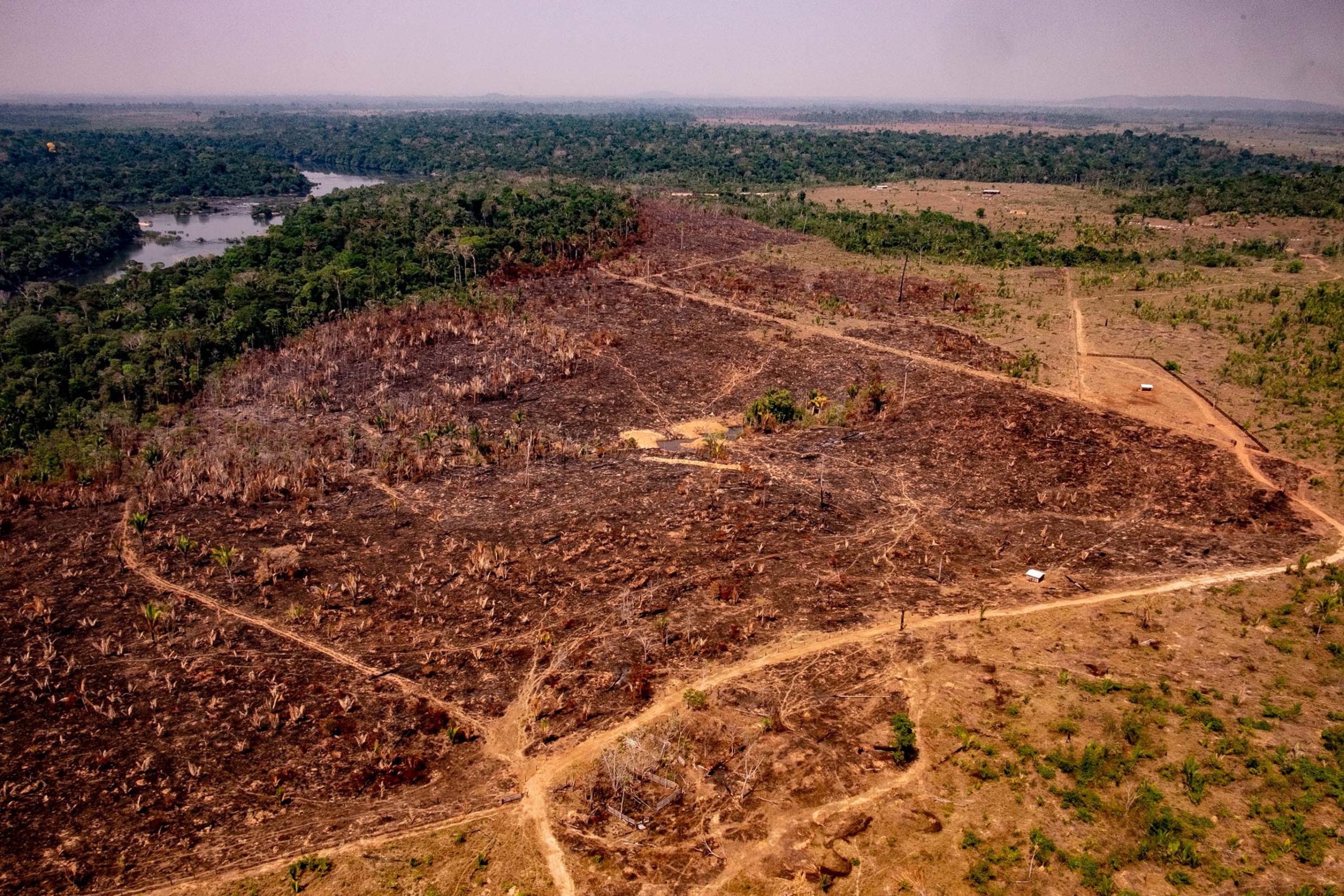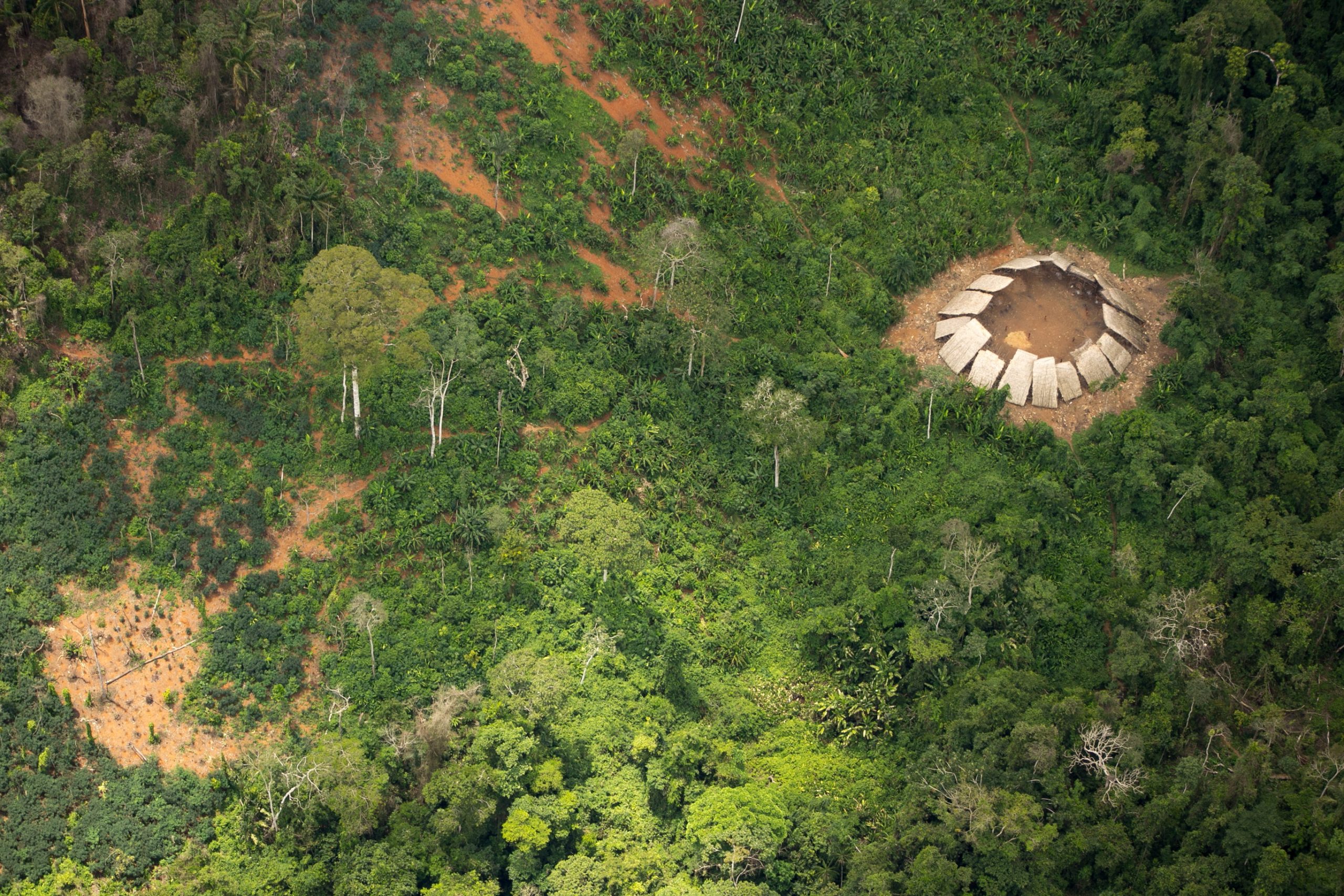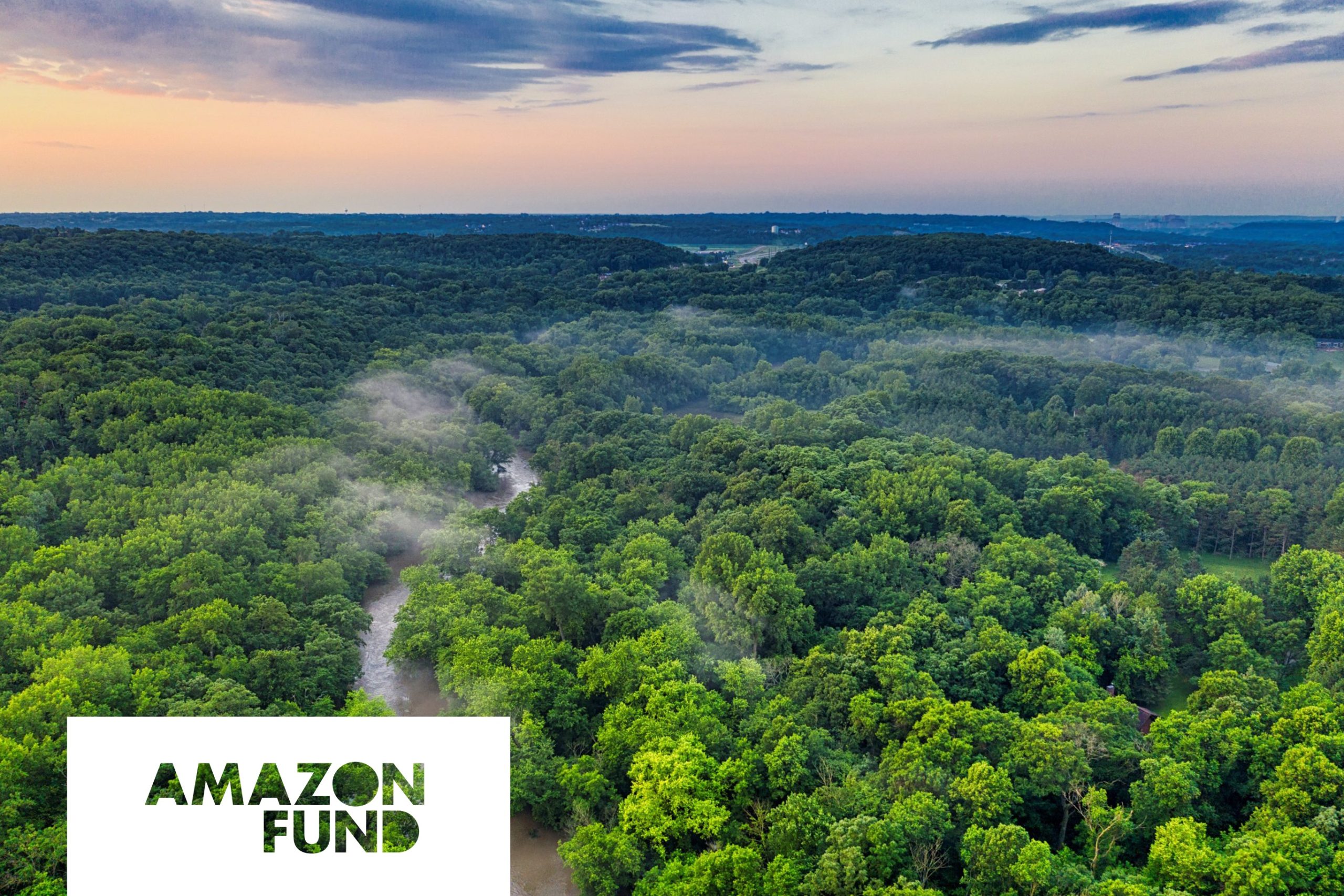Brazil began 2023 facing enormous challenges in respect of the environment. However, the newly elected President, Luiz Inácio Lula da Silva, who defeated Bolsonaro in the October 2022 elections, promised during his electoral campaign to resume environmental policies that had been set aside during Bolsonaro’s administration.
Before taking office on January 1, the new President of the South American country attended COP27 in Egypt to announce to the world that Brazil was about to change direction in its environmental policy priorities.
Pledges to halt deforestation
In front of major world leaders, he stated that over the next four years, he would take steps to eliminate deforestation and degradation in the Amazon and other biomes in the country by 2030.
See also: Explaining desertification: natural causes and human contribution
Lula emphasized that the country “is back to rekindle ties with the world” in terms of climate diplomacy after almost four years of the Bolsonaro government which rejected partnerships that aimed to combat global warming and preserve Brazilian forests.
“We have 30 million hectares of degraded land. We have the technological knowledge to make them arable. We don’t need to deforest even a meter of forest to continue being one of the largest food producers in the world,” said the President.
Past government’s environmental legacy
However, the situation is far from positive at present. Since 2017, the destruction of the world’s largest rainforest has been on the rise — in the first three years of Jair Bolsonaro’s government, this rate rose by 73%, according to the National Institute for Space Research (Inpe), a Brazilian Institute that measures deforestation.
The former government actively encouraged the exploitation of the Amazon for economic development and in 2021, Inpe announced that 13,235 km² of the Brazilian Amazon had been destroyed between August 2020 and July 2021, which is a 15-year record.
This will make it more difficult for Lula’s government to quickly and significantly reduce the rate of deforestation and help the world to achieve the goal of reducing the global temperature by 1.5 degrees by 2030.

“It’s as if Brazil had lived the last four years without any environmental policy. What we had was an agenda for the destruction of forests and the weakening of entities that protect the environment,” criticized Marcio Anstrini, secretary of the Climate Observatory. “Environmental crime has always existed, but it has never had a companion sitting in the presidential chair. The crime was driven by the actions of the former Brazilian government,” he added.
For Isabel Garcial, climate and emissions manager at Imaflora, the expectation is for a decrease in the deforestation rate as early as 2023, “but the current situation is one of chaos and the Bolsonaro government leaves a scenario of scorched earth”.
But what needs to be done to reverse this trend in 2023? DevelopmentAid spoke with specialists and environmental entities to find out which are the most urgent environmental measures that must be taken to reverse the cycle of deforestation.
Dysfunctional laws
One of the major challenges that the new government will face is the lack of effective enforcement of laws and regulations aimed at protecting the Amazon. During the Bolsonaro administration, funding for environmental enforcement agencies was significantly reduced, leading to a decline in their ability to police illegal activities such as logging and land invasions.
A report published by the Talanoa Institute lists the repeal of hundreds of measures and administrative acts signed during the Bolsonaro government as the most urgent measure. The document identifies 401 arbitrary executive branch decisions that need to be amended with 276 requiring regulation and adjustment, 18 that should at some point be revoked, and 107 requiring immediate repeal.
“These are acts that, in general, reduced environmental protection in the Amazon and consequently increased the emission of greenhouse gases in the country,” says Natalie Unterstell, President of the Talanoa Institute.
Impact on indigenous communities
For example, among the most urgent reversals required within environmental policies, the institute draws attention to the existing flexibility of activities such as mining and fishing and since January, the country has faced the consequences of these measures.
In the state of Roraima, the largest indigenous reserve in Brazil, the Yanomami Territory is experiencing an unprecedented health and food security crisis. In the last three years, 571 indigenous children from the Yanomami community have died from malnutrition, malaria and mercury contamination. This is a situation that, according to specialists, has been aggravated by the rise in illegal mining in the region. In the last four years, the number of artisanal miners reached 20,000 – almost the same size as the population of 28,000 indigenous peoples in the region.

“This is one of the greatest tragedies that has happened on Brazilian soil. We’re saying it’s not today. Indigenous leaders have systematically denounced the Brazilian state,” warns Estevão Benfica Senra, a researcher at the Socioambiental Institute (ISA).
“You have a situation of severe malnutrition in children up to five years old, with 80% of them suffering from a nutritional deficit. It is a genocidal practice because the Brazilian state was aware of this information and did nothing to prevent these deaths,” he says.
Despite the creation of the Yanomami reservation in 1992, the Brazilian government has been criticized for failing to adequately protect the rights and well-being of the Yanomami with illegal mining and logging continuing to take place within its boundaries, with little intervention from the authorities.
The death of the Yanomami people highlights the need for more effective protection of indigenous rights and better healthcare provision in remote and marginalized communities. International organizations and human rights groups have called for increased attention and action to address the ongoing humanitarian crisis among the Yanomami and other indigenous groups in Brazil.
Recreate institutions of protection
In addition to revoking these measures, the new government faces the challenge of restructuring environmental agencies. The Bolsonaro government was noted for reducing the functions of and removing and persecuting officials from agencies such as Ibama and ICMBio, two essential bodies for the monitoring of the Amazon.
“It’s not simply revoking what Bolsonaro did, it’s recreating organs from scratch, setting up teams, and repopulating the Amazon with supervision. If the government doesn’t show itself present inside the forest, the crimes will continue to happen,” warned Senra.
Amazon Fund to be reactivated
The Amazon Fund was created in 2008 to raise funds for preservation and inspection projects in the Amazon rainforests. The main donors were Norway and Germany and, by 2017, the fund had raised about US$1.3 billion, according to its 2021 annual report.
However, in the first year of the Bolsonaro government, former Environment Minister, Ricardo Salles, announced his intention to change the management of resources and liquidated those committees responsible for overseeing money management and distribution.
Back then, Norway and Germany, which contributed more than 99% of the donations, decided to suspend funding. Over 3.2 billion reais (US$ 627 million) has been frozen since then according to Brazil’s Supreme Court. With Lula’s election as President, both countries have said they would resume funding from 2023.

As confirmation of this intention, shortly after the election of the new President, visiting German Prime Minister, Olaf Scholz, announced €200 million for the protection of the Amazon and projects involving renewable energies in Brazil. Of the total amount, €35 million will be earmarked exclusively for the Amazon Fund.
“With the Amazon Fund functioning, and with the political decision of the Lula government and Minister Marina Silva to primarily fight deforestation and manage to lower rates quickly, I understand that the Amazon Fund will once again be a space where the international community can remunerate the country for services to reduce deforestation and emissions,” evaluated Raul do Valle, a specialist in public policies at the environmental entity, WWF-Brasil.
What has already worked in the Amazon?
The country has already managed to curb deforestation in the Amazon on other occasions. Between 2004 to 2012, during Lula’s first two terms as President, there was an 83% drop in activity after the federal government implemented the Action Plan for the Prevention and Control of Deforestation in the Legal Amazon, the main public policy created for the region in recent years. The plan involved more than 10 ministries and was based on the idea that deforestation cannot be tackled in isolation by environmental agencies, but must be addressed in a comprehensive and integrated manner by a range of federal government bodies.
A similar plan is expected to be put in place now that Lula has been elected for a third term, with the monitoring of the Amazon through satellites, the application of environmental laws and the expansion of protected areas, such as indigenous lands and conservation units. In addition, farmers who deforested the forest will have restricted access to loans and priority policies will be enforced in northern Brazilian cities with the highest degree of deforestation.
“Lula will not be able to bring deforestation to zero [in four years], but he will need to reduce it. To do this in the short term, it will require articulation and collaboration from around the world. It is a demand from the entire planet, not just from Brazil,” comments climate and emissions manager at Imaflora, Isabel Garcia.

